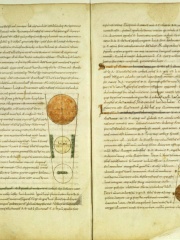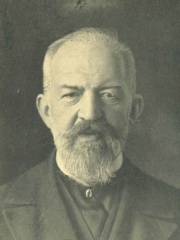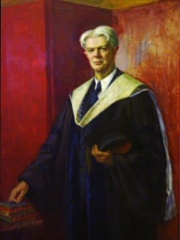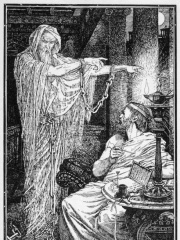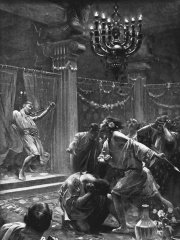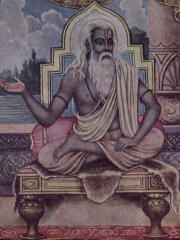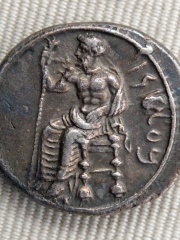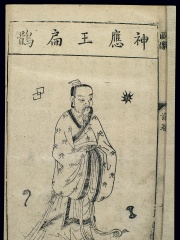Philosopher
Hui Shi
370 BC - 310 BC

 Hui Shi
Hui Shi
Hui Shi (Chinese: 惠施; pinyin: Huì Shī; Wade–Giles: Hui4 Shih1; 370–310 BCE), or Huizi (Chinese: 惠子; pinyin: Huìzǐ; Wade–Giles: Hui4 Tzu3; "Master Hui"), was a Chinese philosopher and prime minister of the Wei state during the Warring States period. A representative of the School of Names (Logicians), he is famous for ten paradoxes about the relativity of time and space, for instance, "I set off for Yue (southeastern China) today and came there yesterday." He is said to have written a code of laws. Read more on Wikipedia
His biography is available in 15 different languages on Wikipedia. Hui Shi is the 776th most popular philosopher (down from 735th in 2024). (down from 1,520th in 2019)
Memorability Metrics
Page views of Hui Shi by language
Among Philosophers
Among philosophers, Hui Shi ranks 776 out of 1,267. Before him are Denis de Rougemont, Calcidius, Lucien Goldmann, Helmuth Plessner, Johannes Nikolaus Tetens, and Kazimierz Twardowski. After him are Michel Henry, William Heard Kilpatrick, Athenodorus Cananites, Yeshayahu Leibowitz, Lucius Annaeus Cornutus, and Nasr Abu Zayd.
Most Popular Philosophers in Wikipedia
Go to all RankingsDenis de Rougemont
1906 - 1985
HPI: 62.27
Rank: 770
Calcidius
400 - 500
HPI: 62.26
Rank: 771
Lucien Goldmann
1913 - 1970
HPI: 62.22
Rank: 772
Helmuth Plessner
1892 - 1985
HPI: 62.19
Rank: 773
Johannes Nikolaus Tetens
1736 - 1807
HPI: 62.19
Rank: 774
Kazimierz Twardowski
1866 - 1938
HPI: 62.18
Rank: 775
Hui Shi
370 BC - 310 BC
HPI: 62.18
Rank: 776
Michel Henry
1922 - 2002
HPI: 62.13
Rank: 777
William Heard Kilpatrick
1871 - 1965
HPI: 62.12
Rank: 778
Athenodorus Cananites
100 BC - 100 BC
HPI: 62.11
Rank: 779
Yeshayahu Leibowitz
1903 - 1994
HPI: 62.09
Rank: 780
Lucius Annaeus Cornutus
10 - 80
HPI: 62.08
Rank: 781
Nasr Abu Zayd
1943 - 2010
HPI: 62.08
Rank: 782
Contemporaries
Among people born in 370 BC, Hui Shi ranks 7. Before him are Apelles, Craterus, Cleitus the Black, Eudemus of Rhodes, Callippus, and Neoptolemus I of Epirus. Among people deceased in 310 BC, Hui Shi ranks 7. Before him are Roxana, Pytheas, Phryne, Vyasa, Pharnabazus III, and Bian Que. After him is Nicanor.
Others Born in 370 BC
Go to all RankingsApelles
PAINTER
370 BC - 306 BC
HPI: 75.64
Rank: 1
Craterus
MILITARY PERSONNEL
370 BC - 321 BC
HPI: 70.98
Rank: 2
Cleitus the Black
POLITICIAN
370 BC - 328 BC
HPI: 68.16
Rank: 3
Eudemus of Rhodes
PHILOSOPHER
370 BC - 300 BC
HPI: 67.42
Rank: 4
Callippus
MATHEMATICIAN
370 BC - 300 BC
HPI: 66.43
Rank: 5
Neoptolemus I of Epirus
POLITICIAN
370 BC - 350 BC
HPI: 62.41
Rank: 6
Hui Shi
PHILOSOPHER
370 BC - 310 BC
HPI: 62.18
Rank: 7
Others Deceased in 310 BC
Go to all RankingsRoxana
COMPANION
347 BC - 310 BC
HPI: 78.55
Rank: 1
Pytheas
EXPLORER
380 BC - 310 BC
HPI: 74.06
Rank: 2
Phryne
MODEL
371 BC - 310 BC
HPI: 73.16
Rank: 3
Vyasa
PHILOSOPHER
390 BC - 310 BC
HPI: 70.22
Rank: 4
Pharnabazus III
POLITICIAN
365 BC - 310 BC
HPI: 65.98
Rank: 5
Bian Que
PHYSICIAN
401 BC - 310 BC
HPI: 62.93
Rank: 6
Hui Shi
PHILOSOPHER
370 BC - 310 BC
HPI: 62.18
Rank: 7
Nicanor
MILITARY PERSONNEL
400 BC - 310 BC
HPI: 59.70
Rank: 8

